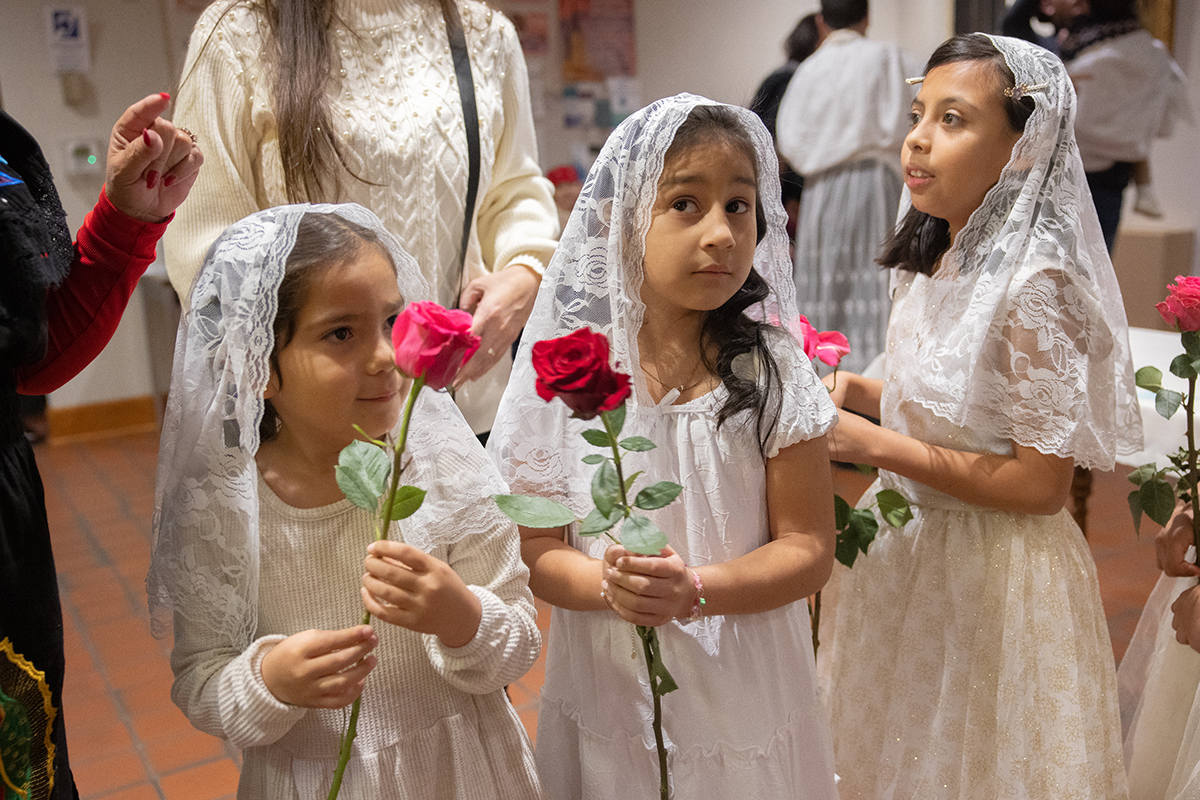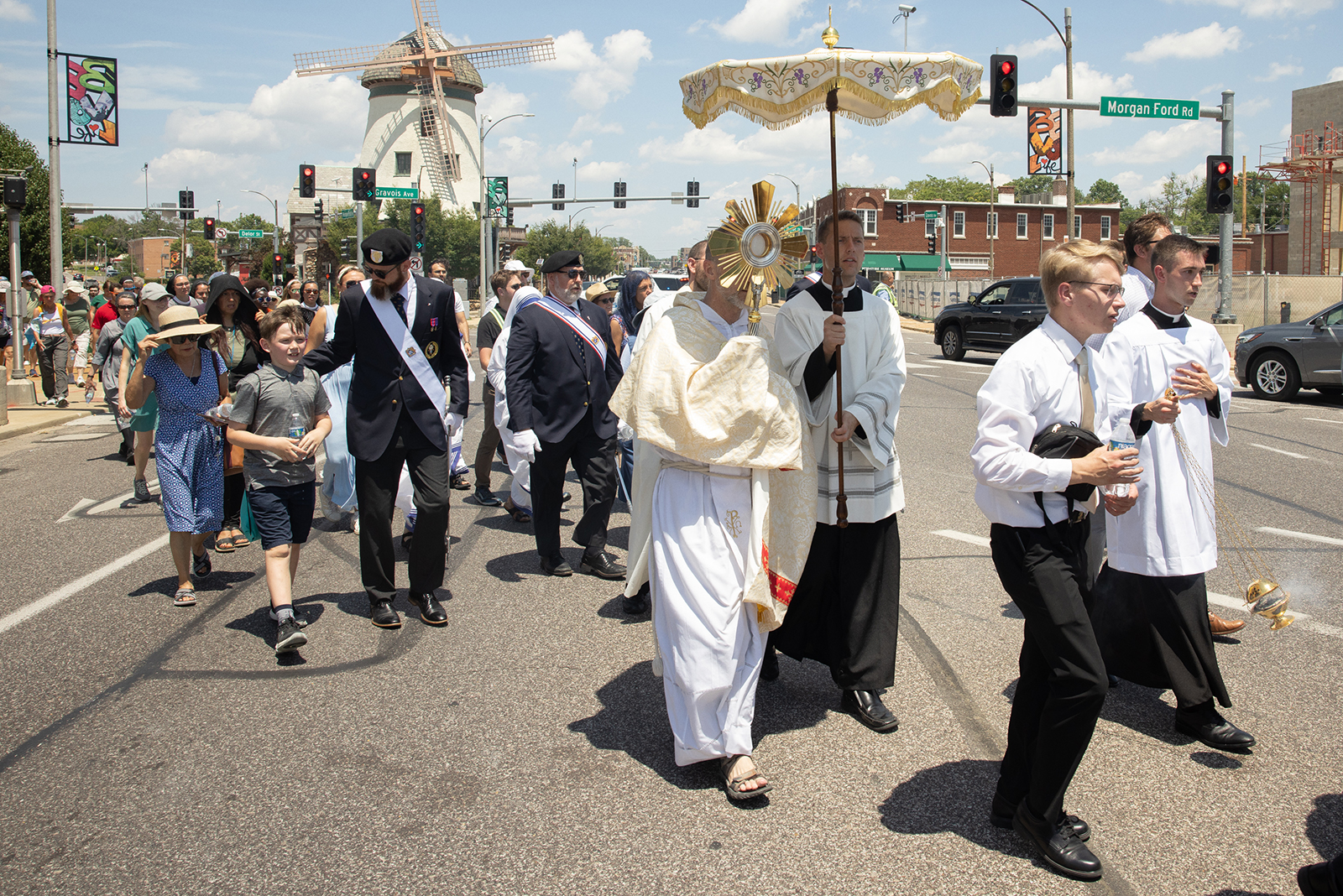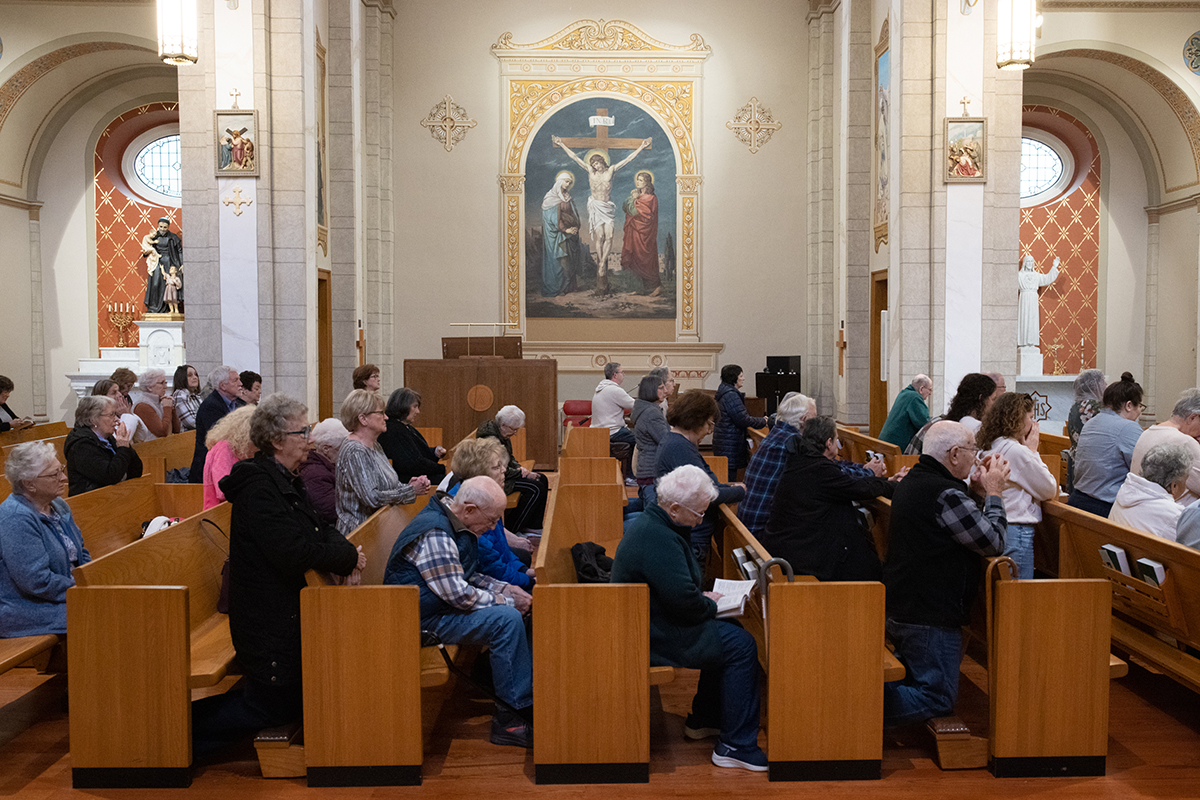St. Louis Catholics file lawsuit over reproductive decisions ordinance
UPDATED MAY 22 AT 12:00 PM
Archbishop Robert J. Carlson reiterated that the archdiocese “will not comply” with a St. Louis ordinance that violates religious freedom.
St. Louis archdiocesan elementary schools joined Our Lady’s Inn, O’Brien Industrial Holdings LLC and Frank Robert O’Brien in a federal lawsuit filed May 22 by the Thomas More Society. The lawsuit was filed in U.S. District Court for the Eastern District of Missouri.
The plaintiffs claim that ordinance 70459 violates their rights under the U.S. Constitution and several Missouri laws. It also asserts that the ordinance’s limited religious exemptions are vague and undefined and do not cover individuals affiliated with organizations that may be exempt. It also forces private businesses to include abortion coverage in their employee health plans, despite sincere objections by company owners.
“As Catholics, we know that all life is a gift from God and our parents, and must be protected at any cost,” Archbishop Carlson said at a May 22 press conference on the steps of the Thomas F. Eagleton United States Courthouse Downtown. “Sadly, legal protection for those members of the human family waiting to be born in this country was removed by the Supreme Court in 1973. Now, some of our St. Louis politicians have made a protected ‘class’ out of ‘reproductive health,’ which is merely a politically correct euphemism for abortion.”
The archbishop also noted that a critical point in the ordinance’s passage has been overlooked: “the lives of babies in their mother’s wombs that are in peril. The passage of this bill is not a milestone of our city’s success. It is, rather, a marker of our city’s embrace of the culture of death.”
Enacted in February, the city ordinance provides a protected class status to any woman who chooses to have an abortion and those who support her in that action — while also discriminating against those who promote pro-life alternatives, the lawsuit stated. The language also creates protections for anyone who has “made a decision related to abortion,” even when the abortion is not their own.
Calling the ordinance “unsound,” Thomas More Society special counsel Sarah Pitlyk said “it creates a protected class defined not by any immutable characteristics such as race or gender, but by special opinion. It violates fundamental constitutional freedoms and multiple state laws. We are asking the federal court to declare the ordinance invalid and to free all St. Louis citizens from the threat of criminal punishment for doing nothing more than exercising their constitutional rights.”
The suit claims that the ordinance violates the U.S. Constitution and several state laws, including the Missouri Religious Freedom Restoration Act, and others that prohibit employer mandated coverage for abortion, and provide for maternity homes, adoption and pregnancy assistance for low-income women.
The ordinance also contradicts a 2014 decision by the U.S. Supreme Court in favor of Hobby Lobby, which stated that requiring family-owned corporations to pay for contraception in health care plans under the Affordable Care Act violated a federal law protecting religious freedom.
Proponents of the ordinance have been unable to point to any examples of discrimination in employment, housing and reality against individuals who have had or were planning to have an abortion. Pitlyk described the ordinance as a “remedy in search of a problem.”
“This ordinance does not exempt individuals with sincere religious, moral or ethical objections to abortion from its requirements in any way,” Pitlyk said, “and even for qualifying religious organizations, the exemption for employment, housing and realty is extremely limited.
“The City of St. Louis, by pushing an abortion agenda, is clearly out of step with the rest of the state,” Pitlyk said.
Our Lady’s Inn, one of the suit’s plaintiffs, has noted that the ordinance will destroy its ability to provide sanctuary to homeless pregnant women and their children. The agency, which was founded 35 years ago, has provided more than 6,000 women with shelter and support, such as securing education, stable housing and employment.
“The ordinance prevents me from hiring only individuals who support our alternatives to abortion mission,” said president and executive director Peggy Forrest. “It also requires Our Lady’s Inn to house women who intend to have an abortion. … This forces us to be complicit in that decision.”
Since the ordinance’s passage, the agency has had a couple of instances in which women have called inquiring about services, but seemed to have questionable motives, Forrest said.
“The potential is really large, since the passage of this ordinance, that women either pretending to need services or knowing full well they don’t want the services that we provide will engage us just to see if they can catch us in violating the ordinance,” Forrest said. “It’s insincere and takes up time for women who really are interested in our services. We support women who have already made a choice for life. And if that’s not the choice they’ve made then our services don’t match them.”
Another plaintiff, Frank O’Brien and his company, O’Brien Industrial Holdings LLC, several years ago were part of a case that became a U.S. Supreme Court case in which Hobby Lobby challenged the Affordable Care Act and its mandate to require contraceptive coverage in most health care plans.
The similarities in the St. Louis ordinance are stark, said Pitlyk of the Thomas More Society. The local ordinance has provisions “that imply all except for a small category of religious organizations can be held under this law responsible for providing abortion and contraceptive coverage in their insurance plans.
“Not only is that illegal under Hobby Lobby, it is also illegal under very explicit state law,” Pitlyk said. “We expect it to be quite easy to show how that particular provision affects Frank O’Brien illegally.”
RELATED ARTICLE(S):
UPDATED MAY 22 AT 12:00 PM Archbishop Robert J. Carlson reiterated that the archdiocese “will not comply” with a St. Louis ordinance that violates religious freedom. St. Louis archdiocesan elementary … St. Louis Catholics file lawsuit over reproductive decisions ordinance
Subscribe to Read All St. Louis Review Stories
All readers receive 5 stories to read free per month. After that, readers will need to be logged in.
If you are currently receive the St. Louis Review at your home or office, please send your name and address (and subscriber id if you know it) to subscriptions@stlouisreview.com to get your login information.
If you are not currently a subscriber to the St. Louis Review, please contact subscriptions@stlouisreview.com for information on how to subscribe.





